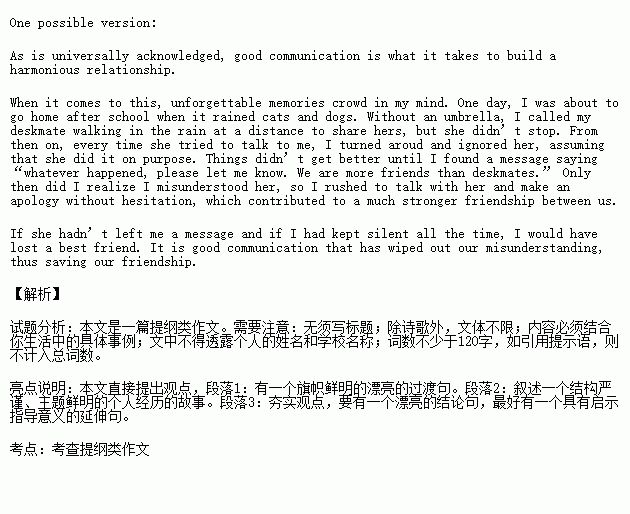题目内容
请根据以下提示,并结合事例,用英语写一篇短文。
We all know that “Silence is golden”, but in most cases, good communication can help wipe out misunderstanding and build a good relationship.
注意:①无须写标题;
②除诗歌外,文体不限;
③内容必须结合你生活中的具体事例;
④文中不得透露个人的姓名和学校名称;
⑤词数不少于120字,如引用提示语,则不计入总词数。
练习册系列答案
 天天向上一本好卷系列答案
天天向上一本好卷系列答案 小学生10分钟应用题系列答案
小学生10分钟应用题系列答案
相关题目

